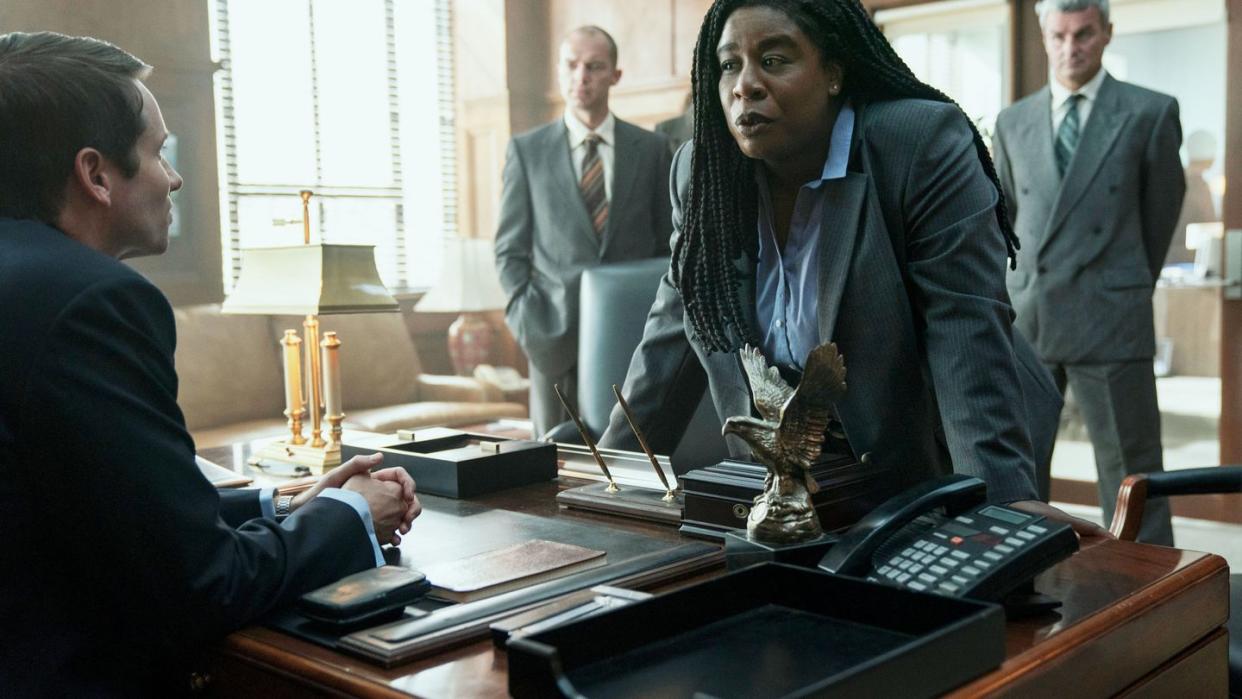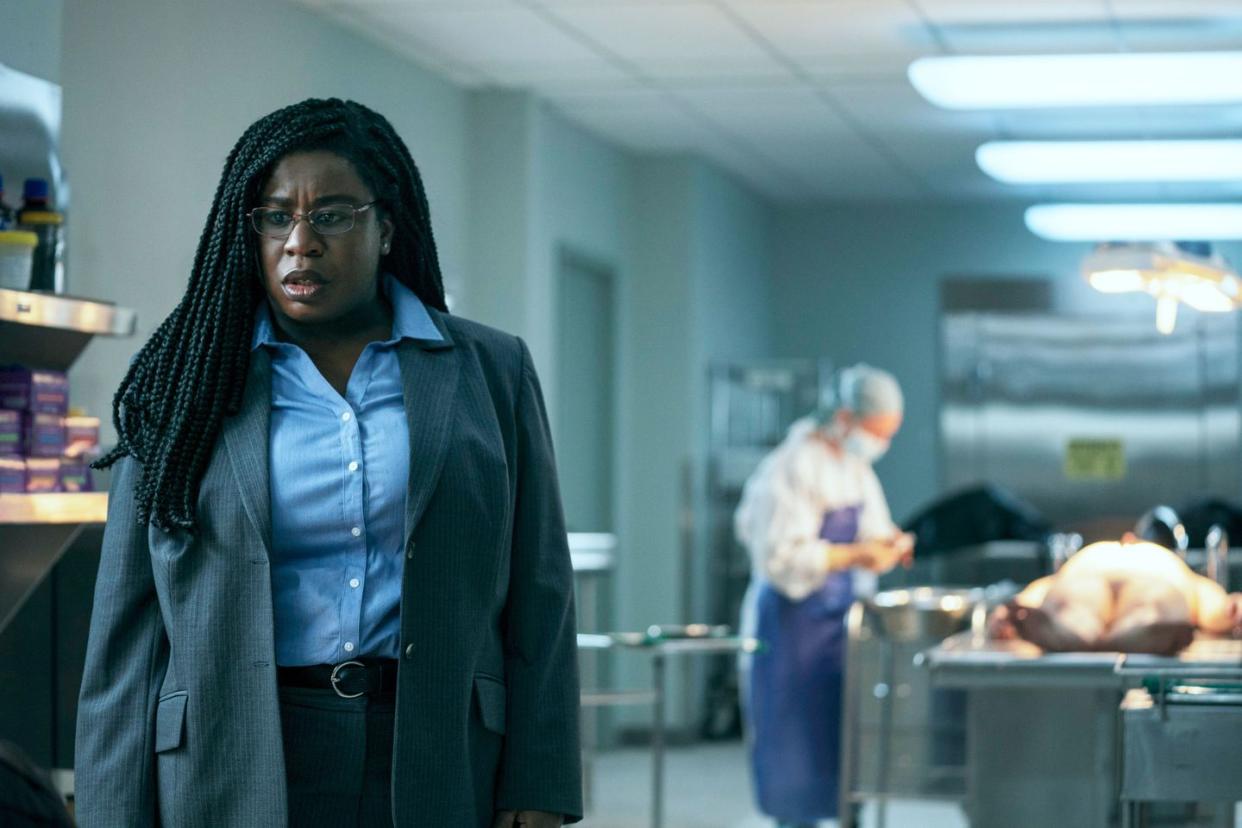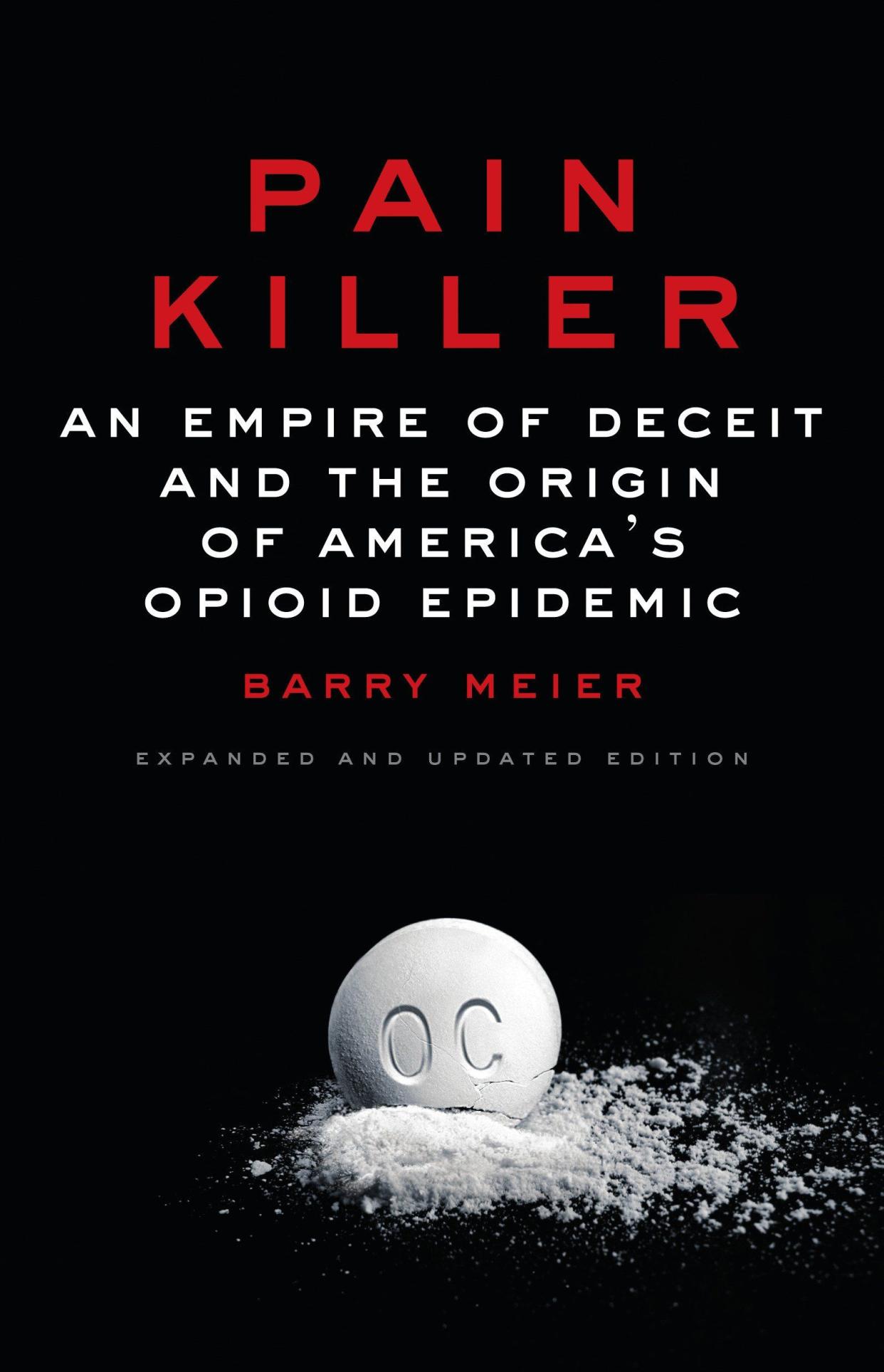Edie Flowers From Netflix's ‘Painkiller’ Isn't Based On One Person

"Hearst Magazines and Yahoo may earn commission or revenue on some items through these links."
The new Netflix series Painkiller explores the opioid crisis from multiple points of view.
It shows the epidemic from the top-down, from the president of a pharmaceutical company that produced OxyContin who marketed the prescription drug, despite knowing about its addictive qualities to sales people who promoted the drug across the country, to everyday Americans who spiraled into addition.
It also dives into people whose lives were changed by taking the medication, such as as well as a lawyer named Edie Flowers who tried to figure out where things went wrong.
Painkiller is a riveting look at how the opioid epidemic unfolded, and plenty of people are buzzing about Uzo Aduba’s portrayal of Edie.
But is Edie Flowers a real person? Here’s what you need to know.
Is Painkiller a true story?
Yes, Painkiller is based on a true story. The plot of the drama is based on the 2003 book Pain Killer by Barry Meier, as well as a 2017 New Yorker article called “The Family That Built the Empire of Pain,” according to Netflix.

Is Edie Flowers based on a real person?
Edie is actually a “composite character,” which means that she’s a fictional mix of a few different people. Other composite characters on the show include Glen Kryger (played by Friday Night Lights star Taylor Kitsch) and Shannon Schaeffer (played by West Duchovny).
“The world of Edie Flowers, who is a fictitious person—but is a composite of a number of investigators—runs alongside the very real Richard Sackler,” Uzo says in an interview with Netflix's Tudum. “Having those points of intersection where the two worlds come together was incredibly impactful and powerful.”
Richard Sackler, in case you haven’t seen the drama yet, is a powerful pharma tycoon.
How did Edie's team investigate the case?
The series shows Edie making it clear that she has a personal tie to Oxycontin after her boss warns her about taking on a pharmaceutical giant.

Pain Killer: An Empire of Deceit and the Origin of America's Opioid Epidemic
$53.64
amazon.com
"They are doing the exact same thing as every crack dealer on every corner in America, except they're getting rewarded for it, getting rich off of it, and my brother is in a prison cell right now, rotting,” she says in the series. “What is the difference? They know they are killing people. They know it."

What happens to Edie at the end of Painkiller?
Edie and her team link the rise in Oxycontin prescriptions with an increase in homelessness, crime, and death from drug overdoses. She also found that the FDA approval that the company behind Oxycontin received was based on fake claims.
As the series shows, one of the secretaries at Richard Sackler’s office eventually shares that her boss and others knew about Oxycontin’s addictive nature but decided to produce it anyway.
Edie manages to present a case and bring it against the pharmaceutical giant.
What year is Painkiller set in?
Painkiller is set in the late 1990s, according to Variety.

How many episodes of Painkiller are there?
There are six episodes of Painkiller on Netflix. It's streaming now.
If you or someone you know is seeking help for substance use, call the SAMHSA National Helpline at 1-800-662-HELP (4357).
You Might Also Like
